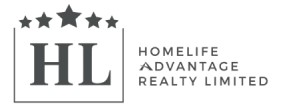Rental FAQs
If I’m looking for a rental, can you find one for me?
We don’t actively look for rentals for you, but we do have a Rental page that is updated daily with our current list of available properties.
You can also stop by our office to get a physical copy of our rental list, which is updated and printed every Thursday.
How do I apply for a rental?
First, get registered on our website here. Once that’s done, simply go to our Rentals page and click “Rent Me Today” on whichever rental you’re interested in!
What if I don’t have a computer to be able to apply online?
What if I don’t have a previous Landlord?
Fill out your application to the best of your ability. If certain areas on your application don’t apply, leave them blank.
What references do I need to include on my application?
We require non-family personal references on our applications.
How can I schedule a viewing for a rental property I’m interested in?
A manager will contact you once your application is approved.
Can I put down a deposit on a rental before I have been approved to secure my spot?
We can’t accept deposits until a Tenancy Agreement is signed.
How can I pay my rent through you?
We accept:
- Debit
- Exact Cash (we don’t carry change in the office)
- Money Orders
- Personal cheques (personal cheques are only accepted on or before the 1st of the month)
- e-transfer
- Auto-withdrawal
Strata FAQs
How do we pay our dues for Strata? (ie. maintenance fees, gas bills, fines, special levies):
We accept:
- Exact Cash (as we don’t carry change in the office)
- Cheques
- Money Orders
- Automatic Withdrawal Forms
- e-transfer
Who should my personal cheques be made payable to?
Your cheques should be made payable to your Strata Corporation’s name or Strata Plan number.
How do I set up automatic withdrawal for my Strata/HOA Fees?
You can also phone the office to and ask for the automatic withdrawal form to be emailed to you. If you get it emailed, you can mail it or scan it once it’s filled out.
Please note: automatic withdrawal forms have to be in 5 business days before the end of the month (by noon the latest). If they’re later than that, they won’t take effect until the following month.
What if I’m too late in setting up my automatic withdrawal for my strata payments?
You can:
- Mail in a cheque
- Come into the office with a cheque
- Come into the office with exact cash
- Specify on the automatic withdrawal form that you would like a one-time double payment to come out the following month (sign beside where you specify)
- Send an e-transfer
What if I just moved and my cheques don’t have my new address on them?
Can I use debit/credit cards for my strata payments?
If my manager is away, who answers my questions?
How do we order Strata Documents?(Eg. Form B, Form F, minutes, etc).
Native Land Form Owner Request Form
Realtor Request Form Mortgage Broker Request Form Lawyer Request Form
How can I pay for Strata Documents?
For Strata Documents, we accept:
- Exact Cash
- Cheque
- Money Orders
- Debit or Credit Cards
Rental Glossary
Tenancy Agreement:
A tenancy agreement is a contract between a tenant and their landlord. It outlines:
- Tenant rights
- Landlord rights
- Occupancy term
- Rent amount.
Condition Report:
The report should be filled out right before the tenant first moves into the property.
For example, if there’s a big scratch in one of the walls before the tenant moves in, that’s not the tenant’s responsibility. Their damage deposit can’t be used to fix the scratch, and the damage gets put on the conditioning report.
Strata Glossary
Strata Property Act:
This framework is affected by judicial decisions from court cases and other legislation.
Capital Planning:
A budget put in place for annual maintenance, such as:
- Roof replacement
- Elevator repairs
- Painting
Contingency Fund:
Agency Agreement:
It gives a general outline of the services that are going to be provided and the length of the contract.
It also includes the disbursements and management fees.
Proposal:
It outlines the services you’ll receive and breaks down the fees.
It also covers HomeLife’s terms and conditions and company history.
Strata Fees:
Collective fees divided between all strata owners. These fees are approved annually by owner votes. The fees cover all common expenses, such as:
- Strata budget
- Contingency fund
- Capital planning
Depreciation Reports:
A report which helps the strata corporation plan and pay for any maintenance of the development’s common property, such as:
- Roof replacement
- Painting
- Parking lot repairs
Budget Shortfall:
Form B:
A Form B is an informational form that covers a number of details regarding the home/strata lot. It’s typically requested during the sale of a home. Some examples of what’s in this form:
- Strata fees
- Outstanding fees
- Liens
- Special levies
- Amendments to bylaws
- Strata lot number
Form F:
Form K:
Common Property:
Common property is all land and building areas that aren’t a part of a particular strata unit, such as:
- Roof
- Parking lot
- Elevator
- Hallways
- Stairwells
